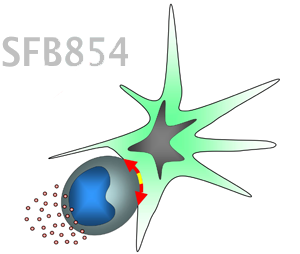Speaker: Prof. Nelson Gekara, PhD, Laboratory for Molecular Medicine Sweden (MIMS), Umea, Sweden
Date: Thursday, 5th of April 2018, 5:15 pm
Location: Campus FME, Hörsaal Kinderklinik (Haus 10)
Host: Prof. Dr. rer. nat. Andrea Kröger (OvGU, Institut für Medizinische Mikrobiologie und Krankenhaushygiene)
Further Information: The innate immune system provides the first line of defense against microbes and other foreign substances. Innate immune detection of and responsiveness to microbes is mediated by sets of receptors known as pattern recognition receptors (PRRs). PRRs include Toll-like receptors (TLRs), found on the cell surface or endosomal compartments and intracellular receptors such as NOD-like receptors (NLRs) and RIG-I-like receptors (RLRs) cytoplasmic DNA sensors. Activation of PRRs results in the production of a large set of proinflammatory cytokines and type I interferons (IFNs), which act concertedly to coordinate host defenses against foreign invasion. Although meant to protect the host, excessive or deregulated induction of these innate immune responses, can either lead to self-injury (e.g. during sepsis or autoimmune diseases). Therefore, in order to maintain an optimal balance between anti-microbial host defenses and protection from self-harm, PRR signaling pathways must be regulated tightly. The Gekara lab is interested in understanding the mechanisms that govern the regulation of PRRs signaling pathways and how the breakdown of such regulation may lead to inflammation or impair anti-microbial host defenses. In particular, they are interested in how DNA damage and the ubiquitin system modulate inflammatory responses.




